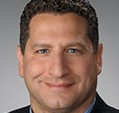Syracuse University Experts on War between Israel and Hamas
Reporters looking for experts to help offer insight on the war in Israel, please see these Syracuse University experts. To arrange an interview with any of the professors listed, please contact Ellen James Mbuqe, media relations executive director ejmbuqe@syr.edu or Vanessa Marquette, media relations specialist, at vrmarque@syr.edu.

Osamah Khalil, associate professor of political science and researcher and writer on Middle East affairs and politics said diplomacy must still be considered during this deadly time.
“The escalating conflict between Hamas and Israel has the potential to become a broader regional conflagration. While the Biden administration has publicly supported Israel and promised additional military assistance, it also needs to emphasize high-level diplomacy with the goal of de-escalating the conflict,” said Khalil.
“U.S. partners and allies in the region, in particular Turkey, Egypt, and Qatar, can play an important role in coordinating with Washington. Even though a short-term cease-fire will prevent the further loss of innocent lives, it will only maintain the untenable status quo,” said Khalil. “The Biden administration needs to commit to robust diplomacy and renewed negotiations between Israel and the Palestinians. This would include Hamas as a party to any talks and participation in a Palestinian national unity government. Otherwise, the increasing cycles of violence will continue without a political horizon for a solution.”
Khalil is a historian of U.S. foreign relations and the modern Middle East. He is the author of “America’s Dream Palace: Middle East Expertise and the Rise of the National Security State” (Harvard University Press, 2016), which examines the influence of U.S. foreign policy on the origins and expansion of Middle East studies from World War I to the Global War on Terror. You can view Khalil’s media coverage on this topic so far by clicking here.

Retired Vice Admiral Robert Murrett is a professor of practice at Syracuse University’s Maxwell School and deputy director of the Institute for Security Policy and Law. He writes:
“The USS Gerald R. Ford strike group, which is comprised of the aircraft carrier, a cruiser and three guided missile destroyers, has been in the Mediterranean since June. The decision to shift this strike group to the eastern Mediterranean is a prudent and sensible move in response to unfolding events in the Levant. While the scope of the conflict between Israel, Hamas and other actors in the region remains to be seen, relocating the battle group and other U.S. military assets in the region will provide additional response options to U.S. and allied decision-makers in the days and weeks ahead.” You can view Murrett’s media coverage on this topic so far by clicking here.

William Banks is a professor emeritus at Syracuse University College of Law and the founding director of Syracuse University Institute for Security Policy and Law. His expertise focuses on constitutional law and national security and counterterrorism law; laws of war and asymmetric warfare; drones and targeted killing; cybersecurity, cyberespionage, and cyber conflict; emergency powers; emergency preparedness and response; civilian-military relations; and government surveillance and privacy.
He writes: “The Hamas attacks in Israel are horrific, and they have committed countless war crimes, as they refuse to distinguish civilian from military targets and brutalize or murder their captives. Israel will reciprocate, but largely with the bounds of law,” said Banks.
“The winner so far is Iran, which gains more proxy clout among Palestinians and manages to scuttle at least for now the Israel/Saudi Arabi diplomacy,” said Banks.
“Americans have been killed in this assault, so U.S. security is threatened directly. We will aid Israel, of course, although they have the resources to fight this war on their own. The most surprising aspect so far is that Israel was caught completely by surprise, and they were unprepared to respond to the attacks for several hours after they were first launched. The intelligence sector and PM’s office will be sorely tested, whatever happens next,” said Banks.

Sean McFate is a professor at Syracuse University’s Maxwell School and author of The New Rules of War: How America Can Win — Against Russia, China, and Other Threats. McFate is an expert on 21st century war and changing international relations, and is one of the world’s leading expert on mercenaries. He can discuss military strategy, national security, and future warfare. In regards to the war in Israel, he was recently interviewed by the Die Presse for the article titled “It could be like Stalingrad in Gaza“.

